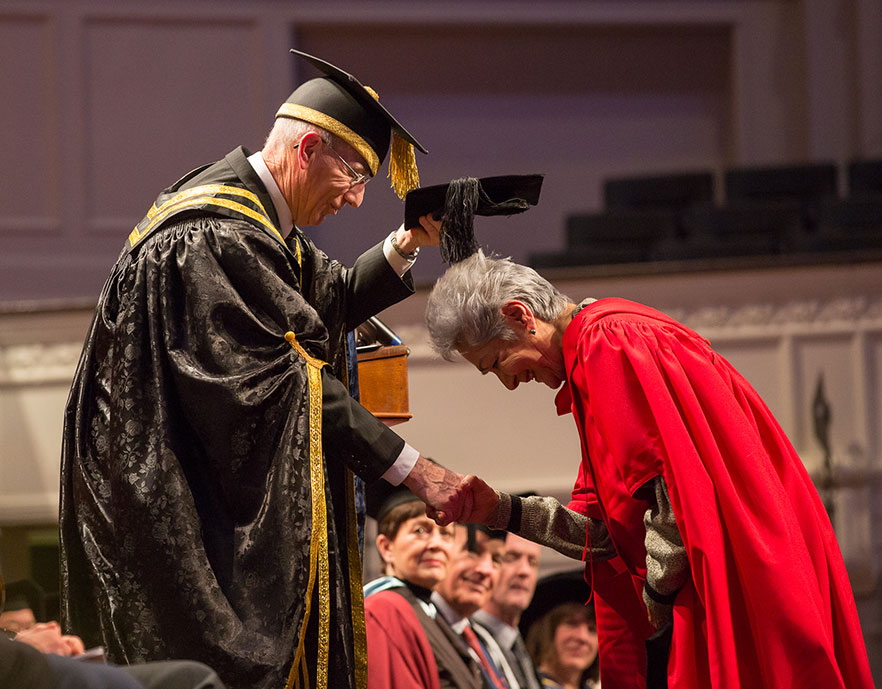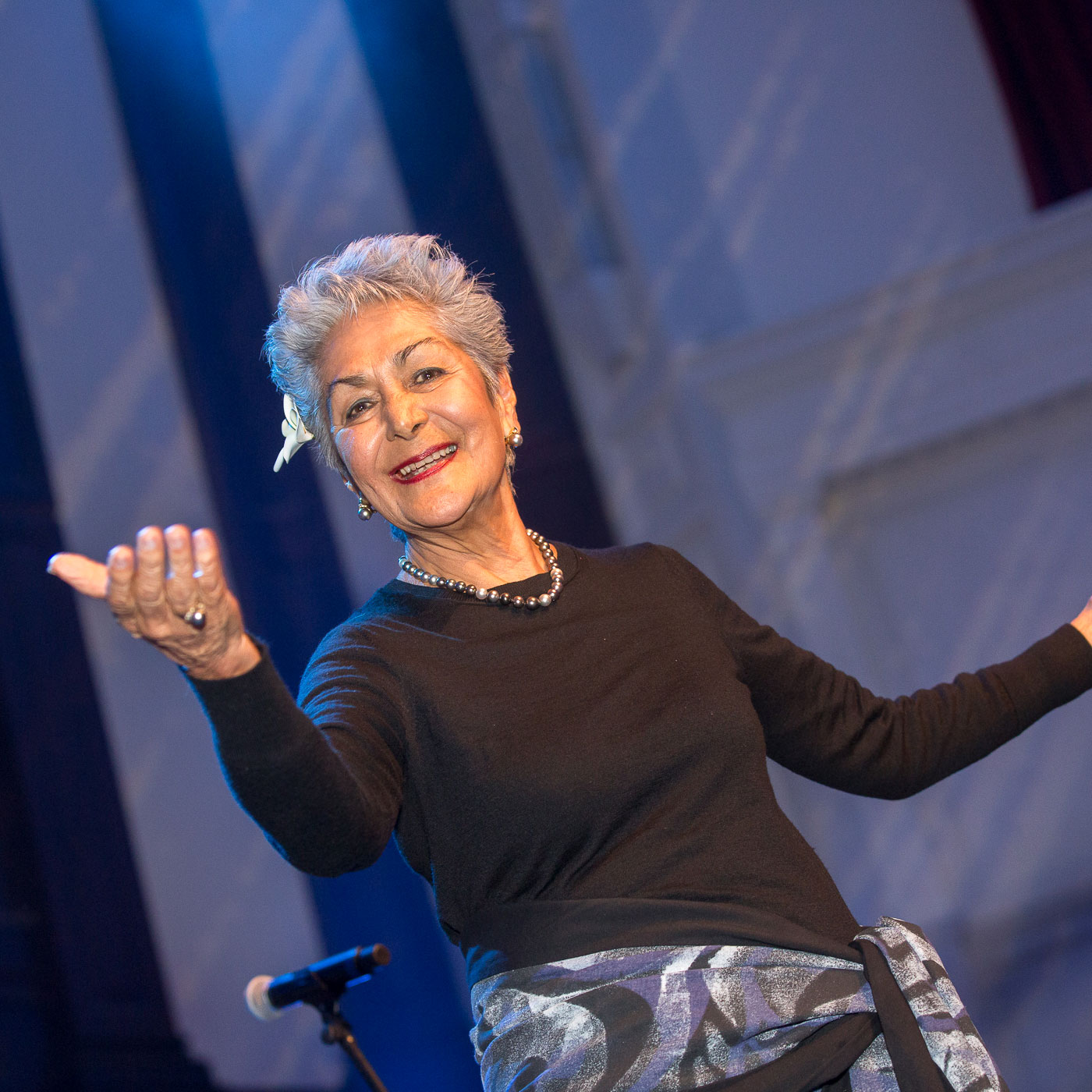A woman
of the
Pacific
New Zealand's first female medical graduate from the Pacific, Papali'i Dr Viopapa Annandale-Atherton, has had a distinguished career, championing work related to improving health outcomes for women and children's health, including sexual, reproductive and public health.
When a teenage Viopapa Annandale-Atherton first applied for a Pacific scholarship to study medicine at the University of Otago, her aspirations of becoming a doctor were dashed.
As a female scholarship student from Samoa, awarded a New Zealand government scholarship to attend Auckland's Epsom Girls Grammar, she was told she had just two study choices available to her – become a nurse or a teacher.
But encouraged by her mother Sina, the only female plantation manager in the area, running her family's cocoa plantation, Viopapa fought to pursue her dream. Her parents were asked to pay half the fees (however, in the end, this payment was never requested) and in May 1964 – two years after Samoa gained independence from New Zealand – she became New Zealand's first female medical graduate from the Pacific.
“My time in Dunedin was exciting, challenging and stimulating. I made many friends, male and female – some of us studied together and we partied together. The overall ambience of Dunedin and especially the Otago University campus environment created a balance between study and relaxation, which also contributed greatly to achieving my goals.
“I think one of the most important lessons, especially for students, is to keep a balance between study and 'time out'. There will be many challenges. Deal with them with patience, respect and dignity.”
From the University of Otago, Viopapa went to Edinburgh – working as a house surgeon at the Royal Infirmary – walking the same halls as her great-grandfather Thomas Annandale, a Professor of Clinical Surgery, had done decades before. She went on to gain her Diploma in Tropical Health (London School of Hygiene and Tropical Medicine) and spent five years on the World Health Organization's advisory committee on long-acting contraceptives.
In Edinburgh, she also met her husband – surgeon Dr John Atherton – and with their sons, Malvern and James, spent many years travelling between the UK and Samoa until permanently returning to Samoa in 1992 where the couple set up a general medical practice.
“As a child, politics and spending time with my Samoan grandmother's family at the family village at Poutasi were the most informative influences at the time,” Viopapa says.
“The awareness that I was extremely privileged and having had a grandfather and other family members who sacrificed much in their fight for Samoa to be self-determining [her grandfather was twice exiled by the New Zealand government] influenced me to feel that I needed to give something in return.”
 Papali'i Dr Viopapa Annandale-Atherton receives an Honorary Doctor of Laws degree from University of Otago Chancellor Dr Royden Somerville QC.
Papali'i Dr Viopapa Annandale-Atherton receives an Honorary Doctor of Laws degree from University of Otago Chancellor Dr Royden Somerville QC.
Photos: Sharron Bennett
That gift has been a lifetime commitment to health care in Samoa, particularly women's and children's health, and campaigning to eliminate discrimination against women.
The head of Samoa's Maternal and Child Health Department from 1971 to 1982, Viopapa was also a founding member of Aoga Fiamalamalama (School of Special Needs Children) in 1979, and Mapusaga o Aiga (focusing on domestic violence, children and human rights) in 1994, and former president of Soroptimist International of Samoa, a global volunteer organisation that empowers women and girls by supporting access to education.
She represented the Pan Pacific and South-East Asia Women's Association on the taskforce of the Samoa Umbrella of Non-Government Organisations for many years. Under her leadership, she secured resources for external agencies, including USAID to empower women's groups in tsunami affected villages, EU funds to end violence against women and girls, and the Civil Society Support Programme for local projects.
Says Viopapa: “When I started the WHO-funded Maternal and Child Health and Family Planning [MCH/FP] project in 1973 in Samoa I realised that there were greater benefits other than improved health for women and children. I saw it as a tool for women empowerment and socio-economic advancement, not only for the family, but also for the village community.
“Joining women's international organisations such as the Pan Pacific and South-East Asia Women's Association [she was International President from 2004-2010] also allowed further inroads into raising awareness of the role of women in promoting equality, peace and understanding amongst all regardless of ethnicity, religion, gender and diversity of any kind.”
Viopapa was responsible for making maternal and child health and family planning services more readily available, including vaccinations for all children by trained nurses, to all the district hospitals on Upolu and Savaii Islands.
She also fought for the health of her beloved Samoa and the Pacific Ocean that surrounds her homeland, protesting the Japanese government's attempt to dump nuclear waste into the Pacific Ocean in the 1970s – and joined the movement against testing of nuclear weapons in French Polynesia.
This included a heartfelt address to the WHO General Assembly in Geneva while Samoa's Acting Director of Health, highlighting concerns for the health and welfare of the people of the Pacific – specifically those in French Polynesia – arising from the French nuclear testing in their area.
Says Viopapa: “I felt that as a woman of the Pacific this was an opportunity I could not ignore, so I raised my hand and walked up to the podium. A number of people thanked me afterwards.&rdquo.
Almost 60 years since Samoa gained independence – a day Viopapa remembers clearly and describes as one of the most memorable of her life at that time – she has spent a lifetime dedicated to women's and children's health. Still, she doesn't consider herself a “career woman”.
“I enjoyed my professional work and challenges, but being a wife and mother was also important. My husband and I travelled to and from the UK and Samoa depending on his contracts with the Samoan government and the educational needs of our children. I was fortunate to find employment wherever we found ourselves. While I enjoyed working in the UK, the highlights were in Samoa.
“In my role as an advisor to a WHO special committee on long-acting injectable contraceptives, I was able to travel widely mostly to developing countries assisting and advising on their family planning programmes.
“However, the experience was tinged with an awareness that the dreams and hopes for improved heath and quality of life for all leads to many questions and challenges.”
Viopapa is humbled by the praise others bestow on her and was surprised by recognition during last year's Otago University's 150th celebrations as one of four outstanding alumni to be awarded an honorary doctorate at a special 150th anniversary convocation ceremony at Queen's Birthday weekend last year.
“I was able to travel widely mostly to developing countries assisting and advising on their family planning programmes. However, the experience was tinged with an awareness that the dreams and hopes for improved heath and quality of life for all leads to many questions and challenges.”
“I was invited by Faumuina Associate Professor Fa'afetai Sopoaga (whom I greatly admire) to attend the Pacific Island celebrations for the 150th anniversary of Otago University,” says Viopapa.
“The treatment of great honour and respect I received from my Pacific and other friends and colleagues in Dunedin was most humbling and touched me deeply. Receiving the honorary doctorate will endure in my memory.”
And what does the future hold for Papali'i Dr Viopapa Annandale-Atherton and her beloved Samoa? Like many, she recognises the immense threat facing Samoa and all Pacific nations caused by the climate crisis and its consequences.
“I am very proud of what our tiny nation and others in the Pacific are trying to do about reducing our carbon footprint, even though we contribute a miniscule compared to that of other nations. We must continue to speak out and defend and protect our blue Pacific.”
AMIE RICHARDSONPapali'i Dr Viopapa Annandale-Atherton: “I think one of the most important lessons, especially for students, is to keep a balance between study and 'time out'. There will be many challenges. Deal with them with patience, respect and dignity.”

